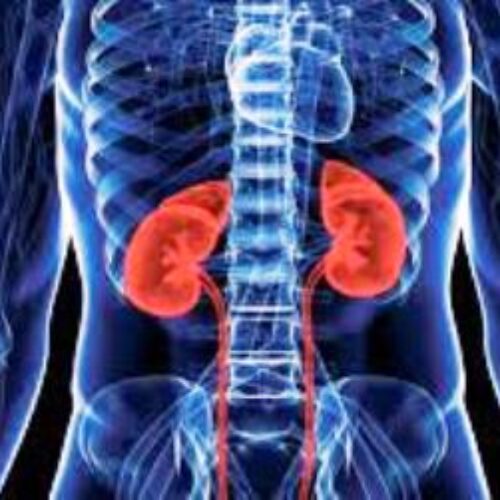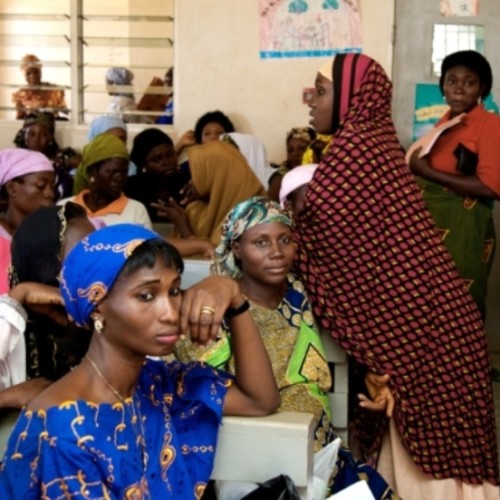Nigeria, UN to hold Summit on food security
The Governments of Nigeria and the United Nations system have renewed commitment to ensure substantial and positive changes in Nigeria’s food systems.
Speaking to journalists during a virtual event recently, the National Convenor of Nigeria Food Systems Summit Dialogues, and Permanent Secretary, Budget and National Planning, Mrs. Olusola Idowu, said Nigeria is working with the UN and other stakeholders to ensure that the nation’s food systems are more sustainable, inclusive, and resilient.
To achieve this, Mrs. Idowu said: “National Food Summit Dialogues would be organized across Nigeria and there would be a harvest of contributions towards shaping the pathways that will lead to the collective determination of sustainable food systems and how they will contribute to achieving food security in Nigeria.
She noted that the dialogues would consider how it would be possible to assess progress towards improved food systems as well as determine who needed to be involved in achieving the overarching objective of building effective food systems in Nigeria.
The National Convenor added that Food systems touched every aspect of human existence. ”In Nigeria and elsewhere in the world, the management of food systems profoundly affect the health of the people, as well as the health of the environment, economies and cultures.”
Also speaking, the UN Resident and Humanitarian Coordinator, Mr. Edward Kallon, emphasized the importance of sustainability of the food system.
He said: “We need to put in place systems to ensure that we produce enough food for the current generation, without compromising the ability of future generations to have access to adequate food and proper nutrition.
“As the population continues to grow, and with the many players in the food industry, there is a greater need for all of us to understand how we will ensure availability of quality food in quantities that will cater to the needs of all people in a sustainable way.”
Kallon underscored the importance of the media in ensuring sustainable food systems. “Without the media, all dialogues would be likened to ‘winking in the dark’, no one sees what you are doing. Nigeria is blessed with a vibrant press in a pluralistic media ecosystem and populated by professionals who constitute one of the world’s best.” He explained and urged media partners to get in the flow of the UN Food Systems Summit, and to support “our efforts by encouraging debate and discussion among the population on issues of sustainable food systems for the country.
On COVID-19 and the food systems, the Resident Coordinator noted that coronavirus pandemic has brought to the fore the connection between food, health and quality of life, and also how many of our
On COVID-19 and the food systems, the Resident Coordinator noted that coronavirus pandemic has brought to the fore the connection between food, health, and quality of life, and also how many of our food systems are failing us, especially where inequality is most prevalent. “The pandemic has powered an unprecedented global appetite for change that must be channeled into transforming food systems to be more inclusive, more equitable, and more sustainable. We must come together as stakeholders to build back better.”
He said.
“While we must understand the purpose of current food systems, their functions, and our own vision in the next decade. We need to also know the changes that need to be made for food systems to meet the SDGs expectations by 2030 and how stakeholders need to effectively work together or differently for collective action” said the Food and Agricultural Organisation (FAO) Country Representative, Mr. Fred Kafeero.
He explained that Government, Food producers and processors, traders, donors and all partners needed to evaluate the current realities, to know what is currently working or not and the lessons learned from what is not working, make recommendations for improvement, and take action towards achieving sustainable food systems for Nigeria by 2030.
Speaking on the UN Food Systems Dialogue and ensuring access to safe and nutritious food for all, UNICEF Representative in Nigeria, Peter Hawkins, underscoring the importance of safe and nutritious food said: “ One out of every three children in Nigeria is stunted; one in 10 children is wasted. This is not only a personal tragedy for families but also has a direct impact on human resources. Unfortunately, Nigeria’s food system has failed children, young people and adults in delivering safe, nutritious food.’’
About author
You might also like
Breaking: Police take over NHIS office
Workers continue protest over reinstatement of Executive Secretary Policemen have been drafted to the office of the National Health Insurance Scheme (NHIS) in Abuja following workers’ protest over the reinstatement
Kidney disease or anger of the gods?
– Ufuoma’s ordeal with condition that swells her body In the small Isoko community in Delta state where she hails from, it is a taboo to conduct the bedroom affair
49 per cent of Nigerian women are anaemic, experts say
At 26, Grace, a banker, could not cope with the rigours of her job. She was always weak and tired all day, making her to resort to heavy eating both






0 Comments
No Comments Yet!
You can be first to comment this post!